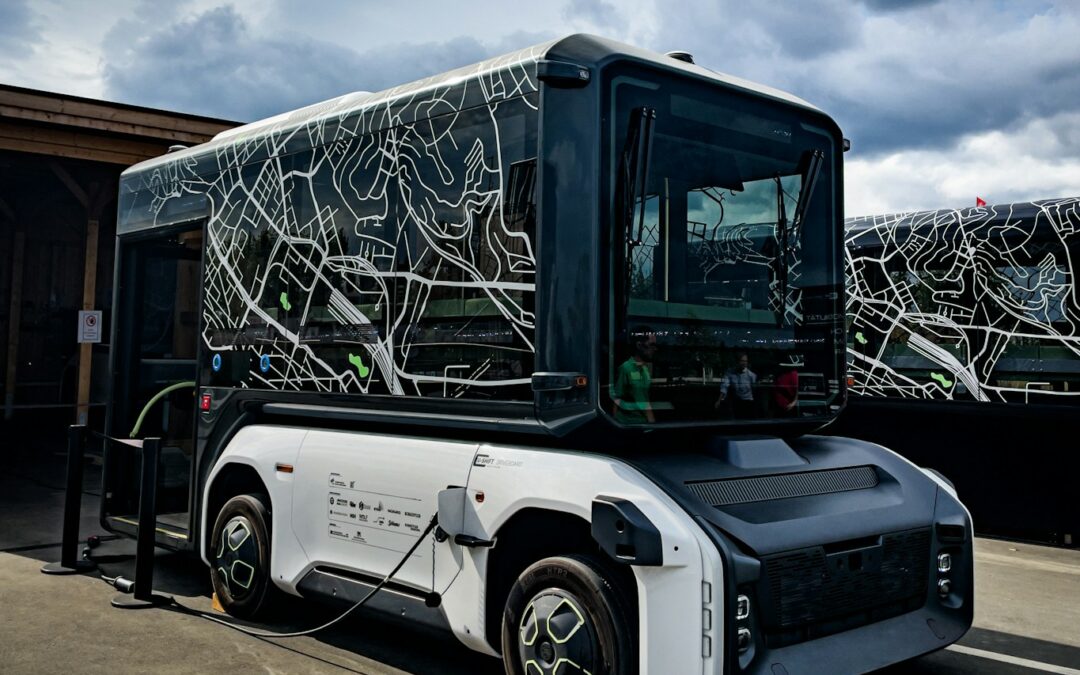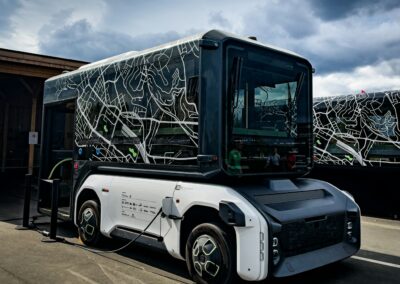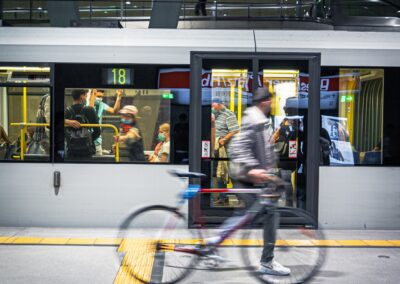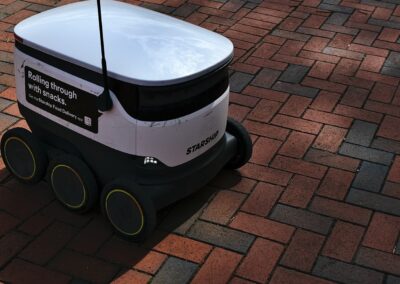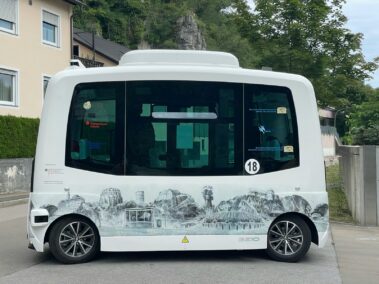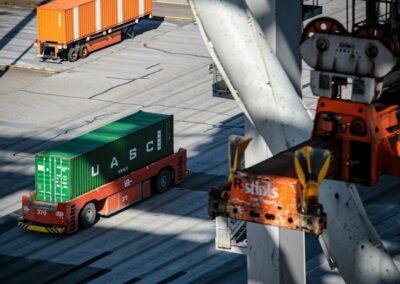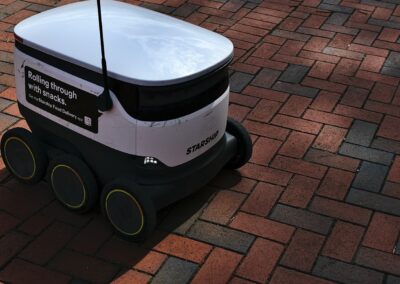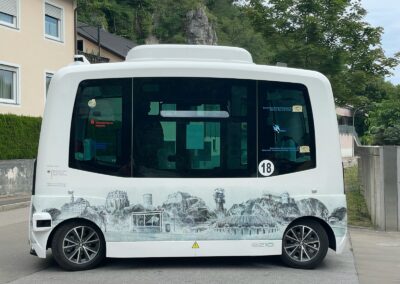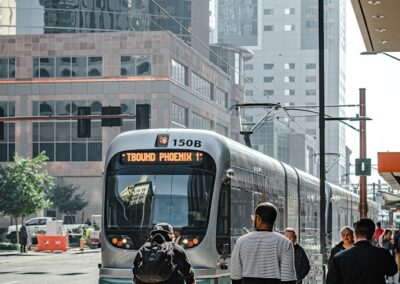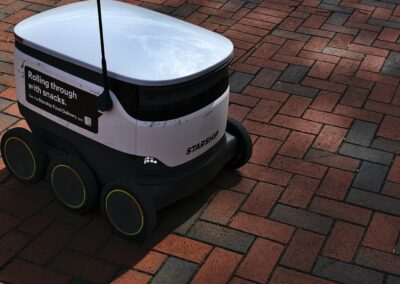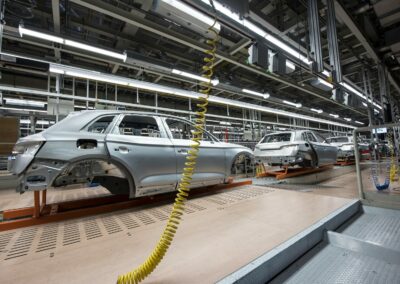The Future of Transportation with Autonomous Vehicles
The Development of Autonomous Vehicles
The development of autonomous vehicles promises to reshape transportation systems and urban planning, heralding a new era in mobility and city management. In dynamic regions like Saudi Arabia and the UAE, where technological advancements are embraced, autonomous vehicles (AVs) offer a significant opportunity to enhance urban infrastructure and improve the quality of life for residents.
Autonomous vehicles utilize artificial intelligence (AI) to navigate and operate without human intervention, relying on sensors, cameras, and advanced algorithms. This technology can significantly reduce traffic accidents caused by human error, improve traffic flow, and decrease congestion. For business executives and mid-level managers in Riyadh and Dubai, AVs represent a transformative shift that could enhance productivity by reducing commute times and transportation costs.
Moreover, the integration of AVs into urban environments necessitates a reevaluation of city planning and infrastructure. Traditional roadways and traffic systems must be adapted to accommodate autonomous vehicles, requiring smart traffic lights, dedicated lanes, and improved connectivity. This transformation offers an opportunity for urban planners to create more efficient and sustainable cities, aligning with the vision of smart cities in the Middle East.
Impact on Urban Planning
The impact of autonomous vehicles on urban planning is profound, requiring a comprehensive approach to redesigning cityscapes. As AVs become more prevalent, urban planners must consider the implications for road design, parking facilities, and public transportation systems. For instance, the reduced need for parking spaces can free up valuable land for green spaces, commercial development, or residential areas, enhancing the livability of cities like Riyadh and Dubai.
In addition, AVs can contribute to more efficient use of roadways. With their ability to communicate with each other and traffic management systems, AVs can optimize traffic flow, reduce congestion, and lower emissions. This is particularly relevant for rapidly growing cities in the UAE and Saudi Arabia, where managing urban expansion and reducing environmental impact are critical priorities.
Furthermore, the integration of AVs with public transportation systems can create seamless and efficient mobility networks. Autonomous shuttles and buses can complement traditional public transport, providing first-mile and last-mile connectivity and ensuring that all areas of a city are accessible. This holistic approach to urban mobility can support economic growth by improving access to jobs, services, and amenities.
Business Opportunities and Challenges
The rise of autonomous vehicles presents significant business opportunities, particularly for entrepreneurs and mid-level managers in the transportation and technology sectors. Companies involved in the development, manufacturing, and maintenance of AVs can benefit from increased demand and new market segments. Additionally, businesses that leverage AV technology to enhance their logistics and delivery operations can achieve greater efficiency and cost savings.
However, the adoption of autonomous vehicles also poses challenges. Regulatory frameworks must be established to ensure the safety and reliability of AVs, addressing concerns related to cybersecurity, data privacy, and ethical considerations. For business leaders in Saudi Arabia and the UAE, navigating these regulatory landscapes will be crucial to capitalizing on the potential of AVs.
Moreover, workforce implications must be considered. While AVs can reduce the need for human drivers, they also create demand for new skill sets related to AI, robotics, and data analysis. Investing in workforce training and development will be essential to preparing employees for the transition to an autonomous transportation ecosystem.
The Future of Urban Mobility with Autonomous Vehicles
Enhancing Sustainability and Efficiency
Autonomous vehicles have the potential to significantly enhance sustainability and efficiency in urban environments. By optimizing traffic flow and reducing idle time, AVs can lower fuel consumption and emissions, contributing to cleaner air and a healthier urban environment. This aligns with the sustainability goals of many cities in the Middle East, including Riyadh and Dubai, which are committed to reducing their carbon footprint and promoting green initiatives.
In addition, AVs can support the development of smart cities, where interconnected systems and data-driven insights drive urban management. Integrating AVs with smart grid technologies and renewable energy sources can create a more resilient and sustainable transportation network. This holistic approach to urban mobility can enhance the quality of life for residents and attract investment and talent to the region.
For business executives and entrepreneurs, the shift towards sustainable urban mobility presents opportunities to innovate and lead in the development of green technologies. Companies that prioritize sustainability in their AV solutions can differentiate themselves in the market and contribute to the broader goal of building smart and sustainable cities.
Driving Innovation and Economic Growth
The adoption of autonomous vehicles can drive innovation and economic growth by fostering new business models and opportunities. In regions like the UAE and Saudi Arabia, where innovation is a key economic driver, AVs can spur the development of new industries, from AI and robotics to smart infrastructure and mobility services.
For instance, the rise of autonomous ride-sharing and delivery services can create new revenue streams and business opportunities. Entrepreneurs can leverage AV technology to offer innovative solutions that cater to the evolving needs of urban residents, such as on-demand mobility services and autonomous logistics. This can stimulate economic growth and create jobs in high-tech sectors, contributing to the diversification of the economy.
Moreover, the integration of AVs into urban planning can attract investment and talent to the region. Cities that embrace autonomous mobility and smart infrastructure can position themselves as global leaders in innovation, attracting businesses and professionals seeking cutting-edge environments. This can enhance the competitiveness of cities like Riyadh and Dubai on the global stage.
Conclusion: Navigating the Autonomous Future
The development of autonomous vehicles promises to reshape transportation systems and urban planning, offering significant benefits in terms of sustainability, efficiency, and economic growth. For regions like Saudi Arabia and the UAE, embracing this transformation with a commitment to innovation and ethical considerations will be key to achieving sustainable development.
By integrating AV technology into urban planning, cities can create more efficient and livable environments, enhancing the quality of life for residents and attracting investment. For business leaders and entrepreneurs, the rise of autonomous vehicles presents opportunities to innovate, lead, and contribute to the broader goal of building smart and sustainable cities.
As we navigate the autonomous future, it is essential to balance innovation with ethical responsibility, ensuring that the benefits of AV technology are accessible to all and used in ways that promote fairness, equity, and societal well-being. By doing so, we can unlock the full potential of autonomous vehicles to drive progress and create a future that benefits all of humanity.
—
#AutonomousVehicles #UrbanPlanning #SmartCities #AIinTransportation #SaudiArabia #UAE #Riyadh #Dubai #BusinessSuccess #LeadershipSkills #ProjectManagement

